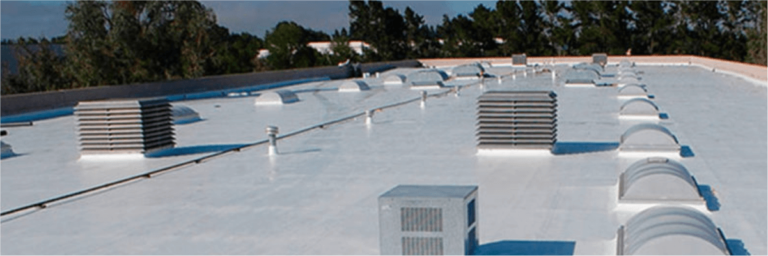
What is a Mechanic's Lien and How to Protect Yourself
Your roofing project is completed! The color you picked compliments the flora and fauna of the area and even highlights your begonias in the front yard. You write a check to Jim Bob the Roofer, and all is right with the world. On to the next project.
There you are a few months later, minding your own business when you get served with a Mechanic’s Lien from Falzoff Roofing Supply Company. “ Who the heck is Falzoff and why do I owe him thousands of dollars?”, you query yourself. After further investigation you discover Falzoff supplied the materials for your roofing job and never got paid. You scoff, “What does that have to do with me? I already paid Jim Bob, let him deal with it.” No, it doesn’t work that way.
When a home or business owner enters into these home improvement contracts, they are responsible for material and labor costs associated with the project. It is assumed that when you pay your contractor, he is such a good upstanding dude he will pay all the costs associated with the project. Most do just that.
But now it’s Christmas time, a family vacation is fast approaching, behind on bills, whatever. Instead of paying off your material bill Jim Bob took your money and put lots and lots of presents under the tree. Besides, the jobs in January should bring enough to cover your bill, and the February jobs will cover January’s.
What if it rains in January and your contractor can’t get any work in? The lien goes out and a slew of sleepless nights ensue.
Falzoff Roofing Supply Company has the right to file a Mechanic’s Lien against your property because they provided materials for the roofing project that have not been paid for. This is a legal claim against your property and can be enforced through the court system if necessary.
It is important to note that as the property owner, you are ultimately responsible for all costs associated with the project, including labor and materials. While you may have paid Jim Bob in full for the project, if he fails to pay his suppliers or subcontractors, you could still be held liable for those debts.
What exactly is a Mechanic’s Lien?
In California, a Mechanic’s Lien is a legal claim against a property filed by a contractor, subcontractor, laborer, supplier, or other professional who has provided labor or materials for improvements to the property. The Mechanic’s Lien is intended to secure payment for the work or materials provided, and it gives the lien holder the right to force the sale of the property if the debt is not satisfied.
To file a Mechanic’s Lien in California, the lien claimant must follow specific procedures and deadlines. The claimant must first provide a preliminary notice to the property owner, general contractor, and other parties involved in the construction project within a specific time frame after the work has begun. The preliminary notice must contain certain information, including the name and address of the claimant, a description of the work performed, or materials supplied, and the amount of the claim.
If the claimant is not paid for the work or materials provided, they can file a mechanics lien with the county recorder’s office where the property is located. The lien must be filed within a certain time frame after the work is completed or the materials are supplied, and it must contain specific information, including a description of the property, a description of the work or materials provided, and the amount of the claim.
Once the Mechanic’s Lien is filed, the property owner has a limited time to either pay the debt or challenge the lien in court. If the owner does not take any action, the lien holder can foreclose on the property and force a sale to satisfy the debt. That makes for a bad day.
What can I do to prevent this?
There are steps to take to protect yourself from unwarranted liens during a construction project. It’s important to do your due diligence when selecting a contractor and managing the project to ensure that everything is being done legally and responsibly.
By hiring licensed contractors and subcontractors, checking their licenses, and verifying their payment history, you can help ensure that everyone involved in the project is operating in good faith and following the rules.
Additionally, checking the prime contractor’s business and professional work history, as well as their history of litigation, can give you a sense of their reliability and reputation in the industry. And by obtaining a list of all subcontractors, laborers, and material suppliers, you can ensure that everyone who is working on the project is accounted for and being paid fairly.
Overall, taking these steps can help you avoid potential legal disputes and financial complications that can arise from construction projects. It’s always better to be cautious and do your research ahead of time, rather than dealing with problems down the line.
Pay for your own materials!
Paying for your materials separately is an effective tool for preventing construction liens. When you issue separate checks to both the contractor and the supplier or subcontractor, it ensures that both parties receive payment and reduces the risk of a lien being placed on your property due to non-payment.
Ask potential contractors beforehand if they will separate the material bill from the overall bill for final payment. A reputable contractor should have no issue with this. If a potential contractor has a problem or excuse for not doing so there is a possibility that they weren’t planning to pay your material bill promptly or were going to use your material money to pay for last month’s material bill, hence the cheap bid. If a contractor says no problem, even with a seriously cheap bid, then you better hope no one falls off your roof. He’s probably not paying Worker’s Comp either.
If everything checks out, write separate checks to both the contractor and the supplier or subcontractor. You have paid your own material bill and therefore have eliminated any chance of a Mechanic’s Lien.
If a Mechanic’s Lien is filed against your property, it is important to seek the advice of an experienced attorney who can help you navigate the legal process and protect your rights as a property owner.
Mid-State Construction is a roofing company that serves the San Joaquin Valley and the Central Sierra Nevada’s. Call for a free roof inspection 559-285-9835





